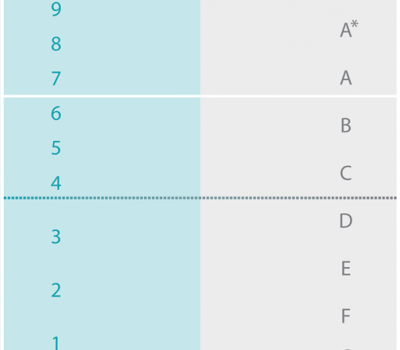

There are so many new teaching ideas out there especially with Twitter and Facebook but what works for one class might not work for another.
Natalie Clark shares her experiences of implementing new strategies from research.

With so many schools looking to evidence-based practices when it comes to raising attainment and improving teaching and learning, I’m grateful that staying on top of educational research has never been easier with the likes of Twitter, the Best Evidence in Brief newsletter and the Education Endowment Foundation.
However, the easy access and an abundance of evidence presents its own set of challenges for teachers – especially if the evidence conflicts with our own experiences or school policies. And, knowing where to start when it comes to implementing research in our classrooms isn’t always simple.
With our ever-increasing workloads, never ending to-do lists, as well as friends and families to balance, it can be overwhelming to think about adapting our practice and materials or trying out something new.
But, taking research to the classroom doesn’t have to be complicated. Here are five lessons learned from trying to implement research-based strategies in the classroom and not always getting it right.
When implementing change it’s best to start small and scale up. You might be eager to try out digital feedback, retrieval practice and reading recovery interventions in one school year but less is more – to begin with at least. How often have we seen potentially great projects fail because they slip down our priority lists when marking, tracking, parents’ evenings and prelims take over?
Keep things small at first. For instance, pick one strategy to implement with one class. If it’s successful you can start to roll it out across other classes or year groups.
The research may prove that dual coding improves memory but only you know whether or not this will work with your pupils on any given day. Evidence doesn’t always trump our professional judgement and knowledge of our classes.
What works with one group doesn’t always work with another. So, choose your strategies carefully and be cautious of the sample sizes, duration of studies and age groups in the research papers you engage with before you take something and run with it. For example, studies using adult EAL learners may not translate to your context.
Even with the best will in the world, your plans will most likely change. Accept this, be realistic and adjust your timeline to relieve any unnecessary pressure. When the school term begins, we always have more time to dedicate to new initiatives so acknowledge from the outset that there will be days or months that you simply cannot devote the energy you’d like to your project. Create an initial action plan and revisit this when you know you have some headspace to adjust and carry on.
I’ve become a bit of an evaluation geek ever since my mentor asked me, “But, how do you know it has had an impact?” Often, I was saying something worked well without checking if my perception was true. I thought reflecting on my practice and adapting when necessary was enough. Occasionally, if I had the time, I might have even asked my pupils what they thought at the end of a piece of work or term. Now, after carrying out a practitioner enquiry, I’m far more confident evaluating my progress and using triangulation.
So, if you’re doing something new, reflect on your progress and evaluate its success throughout rather than at the end. Gather some evidence (test scores, some work before and after, pupil voice etc.) and weigh this up against your judgement – does it confirm or deny your beliefs? What do your pupils or colleagues say? Have a brief focus group or carry out a survey. Using your data you can now robustly measure success and plan next steps based on your findings.
I love the expression, ‘there’s more than one way to skin a cat’ and it’s useful to keep this in mind when considering research within the context of the classroom. Teaching would be boring if we were all doing things exactly the same way all of the time.
There’s a time for written feedback, just as there’s a time for verbal feedback. Some days you might choose to give class feedback or no feedback. Likewise, there’s a time for a worked example, just as there will be a right time for pupil discovery or for group work. Just because something has been proven effective does not mean you abandon everything else.
We can tie ourselves in knots trying to get everything perfect but we should be kind to ourselves. We can’t do everything all of the time. We can only do what works for us, in our contexts, given our constraints. When it comes to using research it’s important to make it work for you and your pupils.